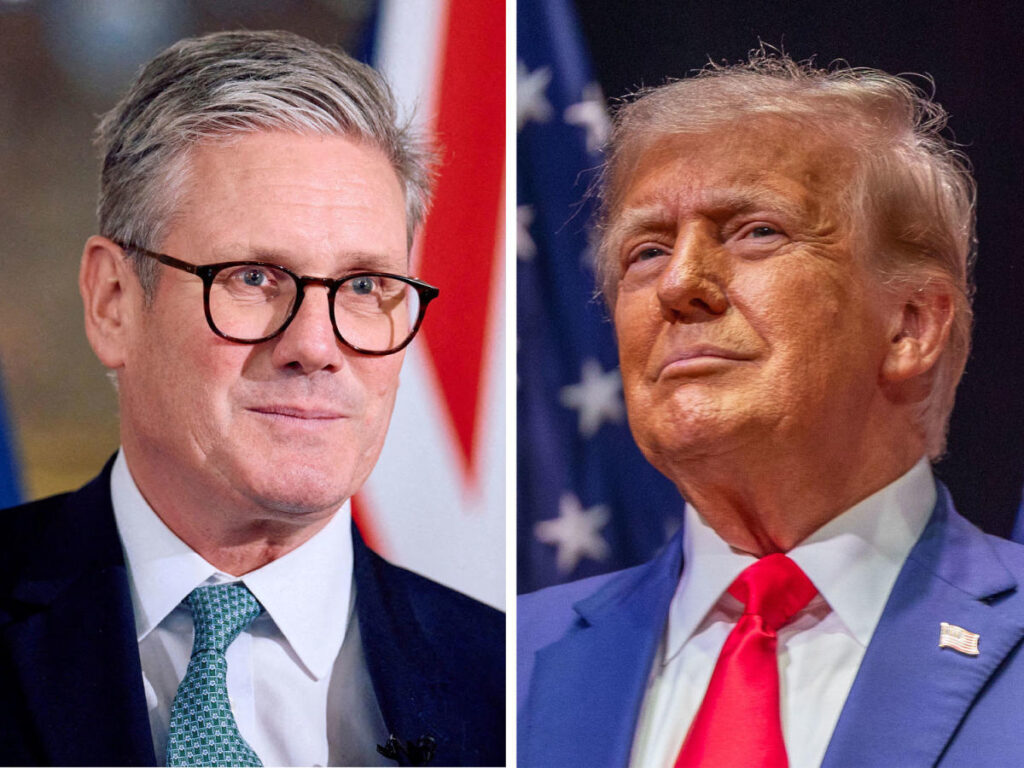In a recent display of political tension, former President Donald Trump’s legal team lodged a complaint with the Federal Election Commission (FEC) against the UK’s ruling Labour Party for allegedly engaging in “blatant foreign interference” that favors Vice President Kamala Harris in the upcoming U.S. election. The roots of this complaint are tied to a LinkedIn post by Sofia Patel, Labour’s head of operations, encouraging party members to volunteer in key battleground states to assist Harris’s campaign as the November 5 election approaches. This move has drawn ire from Trump’s camp, raising the stakes for both U.S. electoral integrity and transatlantic relations.
Prime Minister Keir Starmer defended the Labour Party’s actions, asserting that they have adhered to legal boundaries and that their members’ volunteering efforts in the U.S. are a common tradition, rather than an organized campaign effort from Labour itself. As Starmer was en route to a commonwealth meeting in Samoa when the complaint arose, he emphasized that these activities are voluntary and not centrally orchestrated. The distinction he made comes as he positions Labour’s involvement as a cooperative effort rather than a political maneuver orchestrated from overseas — an essential factor in mitigating allegations of foreign intervention.
Trump’s complaint specifically hinges on the interpretation of Labour’s invitation to its staff to assist Harris’s campaign. The legal nuances come into play, as foreign nationals can offer their support during election campaigns but are bound by certain restrictions, such as not participating in decision-making or spending more than $1,000 on a candidate’s campaign. This raises potential legal ramifications, particularly if British volunteers’ expenses exceed that threshold, potentially leading to fines should the FEC side with Trump’s argument regarding foreign interference.
Furthermore, Trump’s legal letter underlines the travel of Labour’s officials to significant Democratic events, such as the Democratic National Convention. Although this action is not unique or unheard of, as international political allies commonly engage across borders, Trump’s emphasis on perceived misconduct underscores his ongoing confrontational stance towards foreign involvement in domestic politics, reflecting his broader strategy of appealing to nationalist sentiments among his base. The juxtaposition of these allegations against Labour signals that a potential Trump victory in the upcoming elections would confront longstanding international partnerships with a provocative and confrontational approach.
Historically, this is not Trump’s first foray into the politics of a foreign nation, as he has previously commented on British politics and aligned himself with certain factions, such as his praise for Boris Johnson. This underscores how operatives and elites on both sides of the Atlantic have engaged in mutual political support, with examples such as Democratic strategists being hired by British political parties. Such occurrences blur the lines of political affiliations and raise questions about international influence in domestic elections, contributing to an evolving discourse on the legitimacy of such actions in an increasingly interconnected world.
The implications of Trump’s legal maneuvering extend beyond mere legal frameworks; they may also foreshadow a strained relatiobnship with the UK should Trump return to power. As Starmer aligns more with the Democratic policies that Harris represents, the friction between Labour’s perceived transgressions and Trump’s administration’s views could complicate international diplomacy. As the political climate in both countries continues to evolve, interpretations of foreign aid in electoral processes remain a significant concern, amplifying the discourse on the integrity of national sovereignty in the electoral realm.

